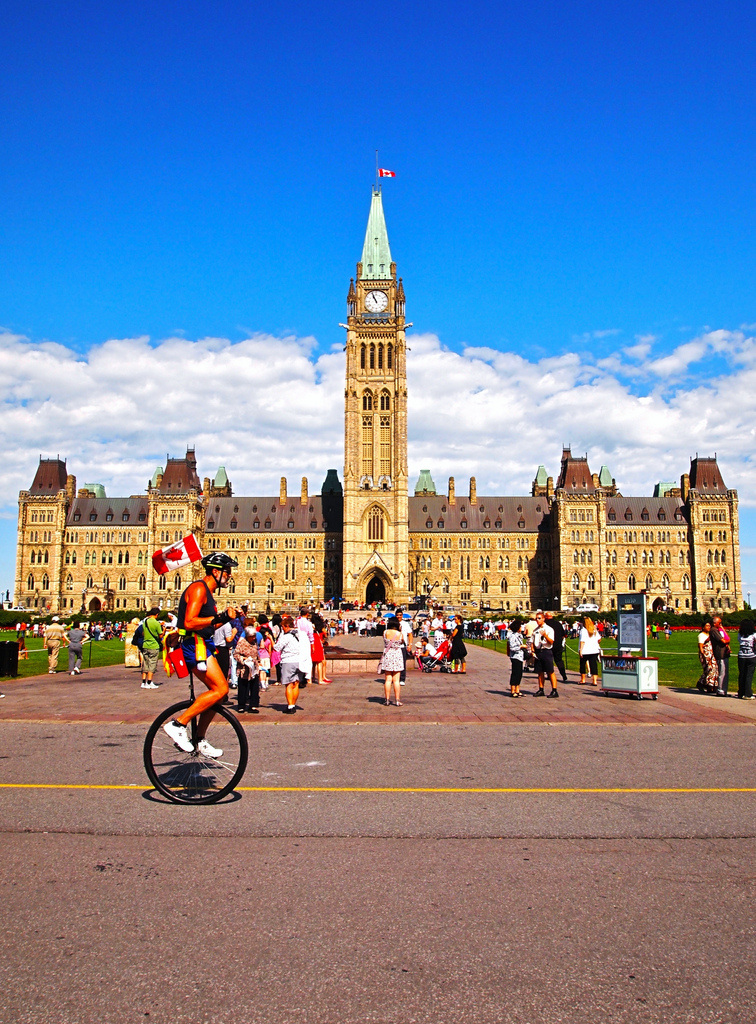| In the moments after at least one gunman attacked Canada’s Parliament building and surrounding areas in Ottawa on Wednesday, John McKay, a member of that Parliament told a Canadian radio station, “This changes everything. … I don’t want to think about the implications for us. That building is the people’s building.” As if to underscore what had happened to the “people’s building,” Reuters published a photo taken inside the Conservative Party caucus room in the Parliament building. Several heavy green chairs had been piled against the door as a barricade. It would have been hard to find a better symbol of what likely awaits our neighbors to the north. They may, unfortunately, become like us. Ottawa is home to my oldest son and, so far anyway, all my grandchildren. As world capitals go, it would be hard to find a mellower place. An old |
| | joke says the best way to keep Canadians from rioting is to say in a calm voice, “Please don’t riot.” But the truth is it would never get that far. Toronto Mayor Rob Ford aside, it is a country where people tend to be civil and government tends to be open. It would be hard to find a nation with a bigger and more annoyingly boastful neighbor to the south — one whose people hardly know Canada exists — and yet on a recent trip our family was greeted by many friendly Canadians who either told us how much they love the United States or of how they hoped to visit some day. If you watched any of the coverage on the day of the attack, you probably saw how officials spoke of a general lockdown, all while people could be seen freely wandering in the background as though in search of a picnic spot. That is charm, and it soon may be on the way out up there, too. As terrorism continues to grow like a cancer (and although what happened in Ottawa apparently involved a Canadian, it was terrorism), freedom begins to look differently. We may never regain what is lost. We are used to the outward signs in the United States. The White House itself symbolizes the shift. A half-century ago, Harry S. Truman used to take regular walks around town. Pennsylvania Avenue was a regular street, with traffic zipping by at all hours. Then barricades were put in place to keep vehicles out. Now, after a recent security breach, even more barricades are place to keep pedestrians far away from the gates. Symbols have meaning. White House barricades represent everything from unchecked NSA spying on civilians to government intrusions into private business databases. After the attacks of 9/11, the first editorial I wrote said of the terrorists, “They win if Americans decide that the only way to be safe is to turn the nation into an air-tight police state, where mobility is restricted and precious freedoms are compromised.” We all know what has happened since. In a recent op-ed, author Michael Levin echoed fellow author Lee Child who wondered what our reactions would have been years ago if the government had decreed that people must carry a device in their pockets letting authorities know where they are at all times. Today, he said, we’re so used to government intrusions we don’t seem to miss our liberties all that much. Of course governments must protect their leaders and buildings that house the institutions of democracy. Of course they must protect the public from attack. But the war on terror, both domestic and foreign, has set the nation on an eternal game of whack-a-mole. Disable al Qaida and ISIS rises up. Destroy them and someone else, perhaps even someone home-grown, is bound to follow. Who has to surrender in order for us to declare victory? What has to happen before government beats its surveillance swords into harmless plowshares? President Eisenhower’s famous warning about a “military industrial complex” has grown to include a hefty surveillance branch with a life of its own. No one should minimize the dangers terrorists pose. But those dangers are many and varied. Perhaps Canada, already a reliable partner in the fight, can find a way to react to tragedy without separating its people further from their government |


 RSS Feed
RSS Feed

